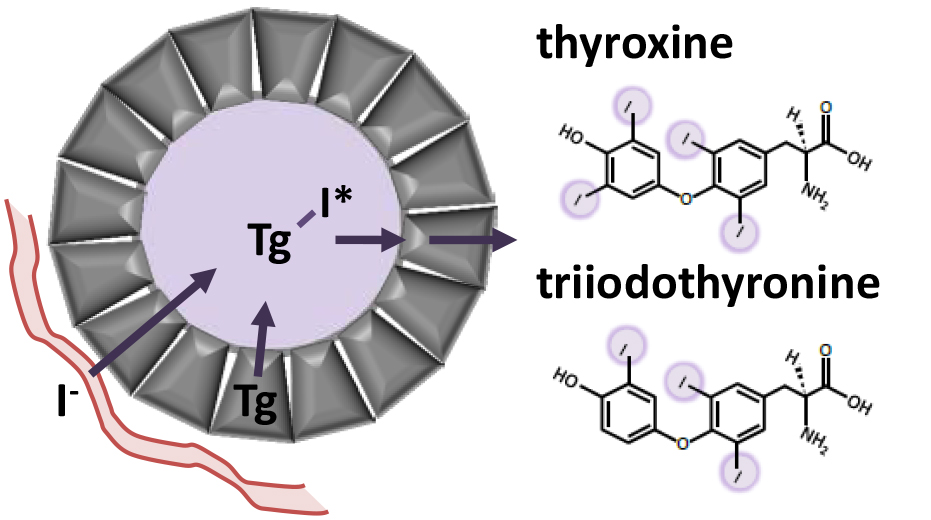Veterinary medicine researcher's thyroid project sheds light on molecular processes related to cystic fibrosis
Tuesday, Oct. 29, 2013
MANHATTAN -- Research in the College of Veterinary Medicine at Kansas State University is leading to a better understanding of the molecular interactions in the thyroid gland related to cystic fibrosis.
A genetic disorder, cystic fibrosis affects the function of epithelia, the tissues formed of cells that secrete and absorb an array of substances important for health.
The university's Peying Fong, associate professor of anatomy and physiology, has received a $285,000 grant from the Department of Health and Human Services in support of her study, "CFTR Regulation of Thyroid Transport."
"We are looking at a cellular mechanism that is essential to production of thyroxine and triiodothyronine, which are hormones that modulate development, growth and metabolism in both prenatal and postnatal cell life," Fong said. "Iodide is an essential component of these thyroid hormones. Its rarity in the environment challenges the thyroid to orchestrate a remarkable series of transport processes that are critical for hormone synthesis."
In addition to actively extracting iodidethrough the circulation process, thyroid cells must also translocate iodide into a central compartment within thyroid follicles, where it begins to combine with thyroglobulin to form the precursor to thyroid hormone.
"Through this study, we are seeking to better understand the molecular interactions between the Cystic Fibrosis Transmembrane Conductance Regulator, or CFTR, and SLC5A8, which are two transport proteins found in thyroid," Fong said. "These proteins may play a role in moving iodide into the follicular lumen."
Fong's project is classified by the National Institutes of Health as an R15 Academic Research Enhancement Award. The NIH uses such awards to strengthen research environments at educational institutions as well as to promote the exposure of students to academic research. This is a renewable grant and helps cover expenses for a period of up to three years.
Fong said that the groundwork for her research project originally began with funding from the Kansas State University's Center of Biomedical Research Excellence, or COBRE, and NIH project "Epithelial Function in Health and Disease"; a grant-in-aid from the American Heart Association Midwest Affiliate; and an Innovative Research Award from the university's Johnson Center for Basic Cancer Research.

